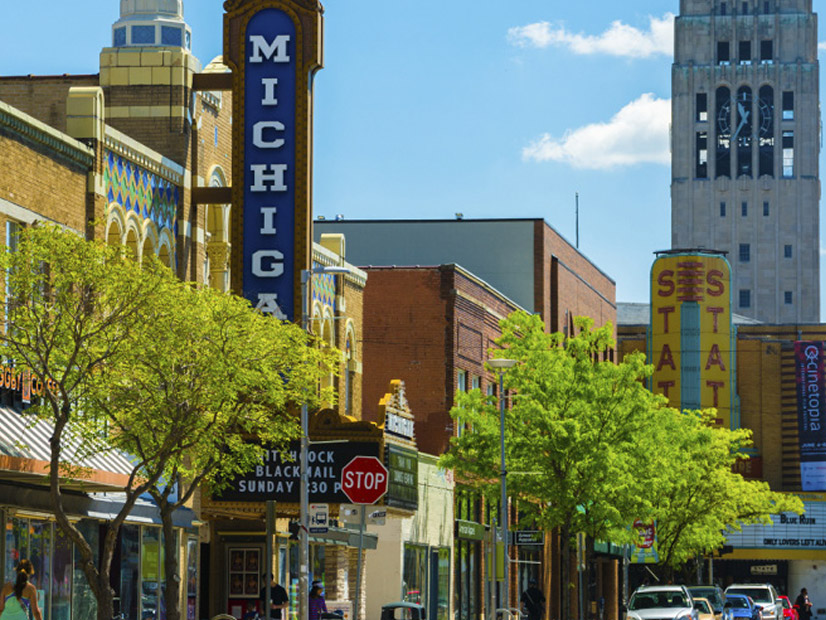Ann Arbor voters, some of the most politically progressive in Michigan, could decide this November to increase their property taxes to fund the city’s plan to move to renewable power sources and eliminate its carbon emissions by 2030.
Mayor Christopher Taylor unveiled what he calls the Community Climate Action Millage plan to City Council members this week. The proposal, which would have to be approved by council for the November ballot, would impose an additional 1 mill on the city’s residences and businesses for 20 years.
The tax would raise as much as $150 million over the life of the levy, including an estimated $6.5 million in the first year. A house valued at $100,000 would likely see its annual tax rise by $100 should the plan be approved. Ann Arbor levies nearly 17 mills for city operations alone; with county and school taxes, homeowners pay taxes based on more than 47 total mills.
If adopted, it would be the first such tax in Michigan.
Full details on the proposal have not been released, and it seemed to have caught some people by surprise. A spokesperson for the Ann Arbor-Ypsilanti Regional Chamber said the group had not seen any details on the plan and would have no comment at this point.
“Achieving carbon neutrality is a moral imperative,” Taylor said in introducing the proposal. “And we need to do everything that we can [to] do our part.”
Ann Arbor, home of the University of Michigan, adopted its A2Zero plan in 2019. It calls for all its power to come from renewable sources by 2030 with programs to aid lower income residents to upgrade appliances and add home electric generation.
Councilmember Jen Eyer told NetZero Insider the plan was “not passed to sit on a shelf; the intent was to put it in action. To do so requires funding.” She said because Michigan has failed to adequately help fund local governments, there is no money in Ann Arbor’s budget to put the plan into operation.
The tax would not cover all the costs to implement the energy plan, she said. The city will also pursue grants and other funding options to cover the full costs of implementation.
Nick Dodge of the Michigan League of Conservation Voters praised the proposal. “Ann Arbor is demonstrating leadership on tackling climate change, which is the challenge of our lifetime,” he said. “Investments made today to mitigate climate change will pay off in dividends in the future.”



